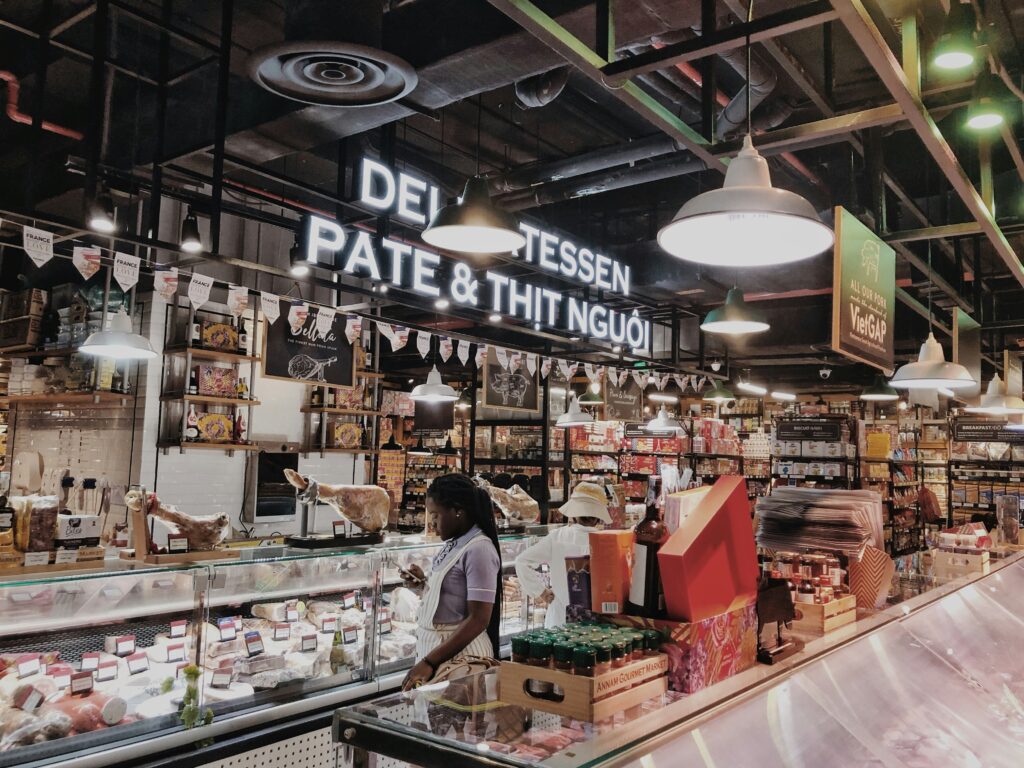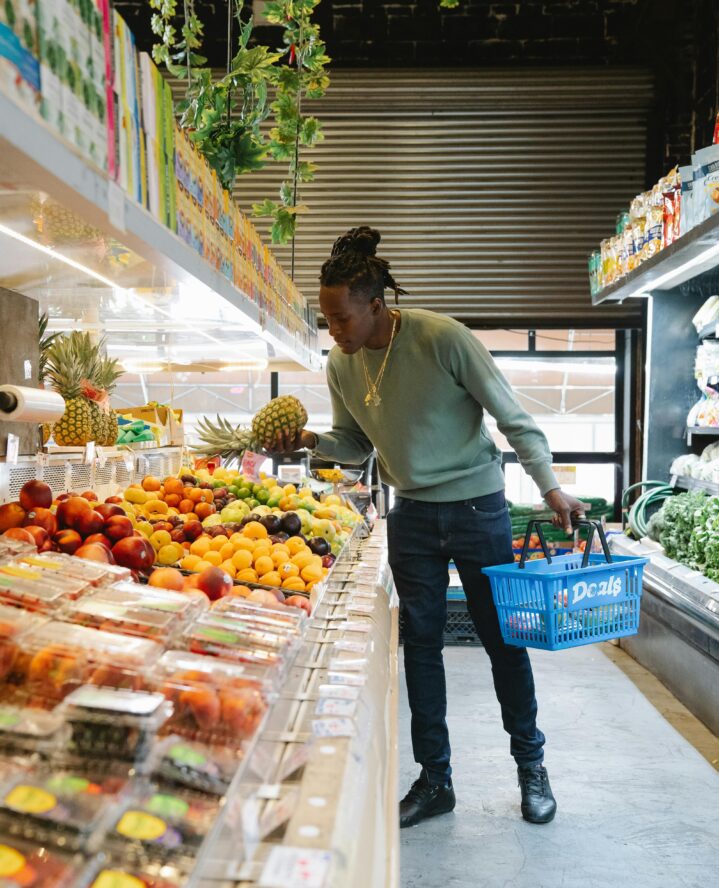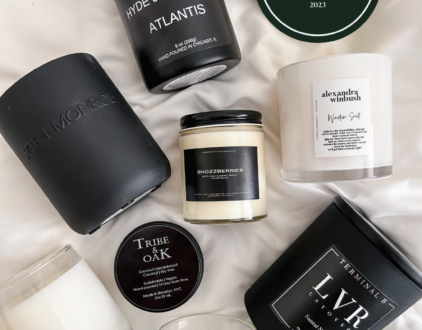On the very first day of the new Trump administration, POTUS announced that he would be stripping numerous DEI protections via executive order. This decision allowed companies from around the nation to drop DEI hiring practices, protections and bonus incentives. As a result, a number of major businesses were exposed for having only supported diversity, equity and inclusion because they legally had to. While a good handful of corporations, including Costco, Apple Computers and Delta Airlines have maintained an independent commitment to supporting marginalized communities, a wide array of tech giants, auto body manufacturers and grocery chains have dropped the diversity, equity and inclusion framework from their company handbook entirely. DEI is an issue near and dear to many Americans’ hearts, meaning many shoppers are now being more selective about where they spend their money. Some have even considered boycotting companies that don’t align with their personal views.
If this is an issue significant to you, we’ve got you covered, with a comprehensive guide to which grocery chains specifically do and don’t support DEI. We’ll run through everything we know regarding the current state of national grocery shopping, and see if we can hone in on specific companies based on comments made in the last month or so. As you can imagine, many businesses are making a concerted effort to stay out of the spotlight on this issue in a bid to not alienate their customers. Needless to say, these policies can change on a dime, so we’ll continue to keep you updated on the status of these DEI-friendly businesses as the Trump administration continues gutting protections for BIPOC, LGBTQ and disabled employees.
What Exactly Is DEI?

To understand exactly how the DEI business framework impacts you and your family directly, we first have to understand what the acronym actually means. Donald Trump and his associates have already begun cheapening the term by relegating any nebulous critique of business culture to a DEI issue, even when such an argument is completely absurd. For one particularly egregious example, Trump blamed January’s tragic Washington DC plane crash on DEI, despite the fact that his administration had gutted the FAA and rolled back safety protocols just days before the crash took place. Trump refused to elaborate on this claim, likely because there was no way to explain the tenuous connection between overall diversity and a lack of safety measures.
In truth, DEI is simply a framework which ensures that people of disadvantaged communities have certain opportunities to advance within the workforce. The acronym specifically stands for diversity, equity and inclusion, which allows people of all walks of life to get ahead in the world, regardless of their sexuality, social status or race. These measures include sweeping overhauls like requiring businesses to hire a certain percentage of BIPOC employees, as well as small accessibility adjustments such as wheelchair ramps, handicap parking and recognizing Black History Month on the corporate calendar. Though DEI incentives are not necessarily new, they were rolled out at a national level during the early years of Biden’s term, especially in the wake of the George Floyd protests and subsequent social reckoning wrought by Floyd’s untimely slaying. Despite what Trump may say, DEI is an entirely merit-based system, designed to reduce and ultimately eliminate workplace discrimination.
What Grocery Chains Are Doing Away With Diversity, Equity and Inclusion?
As stated, a wide array of businesses have been dropping their DEI policies in the wake of Trump’s executive order. While it may be disheartening to learn about Ford Motors, John Deere and Boeing backsliding on their promises, these companies likely don’t play a role in your week-to-week purchases. For most American consumers, the biggest impact will be felt at the grocery store. For now, a number of grocery chains have definitively stated that they will not support DEI, including Target, Walmart and Amazon (Whole Foods). This is particularly disheartening as Target was one of the loudest supporters of DEI in the wake of the George Floyd protests. Back in 2021, the Minneapolis-headquartered retailer launched Forward Founders in an effort to support Black-owned products and local businesses. They also announced a plan to increase their BIPOC workforce by over 20 percent over the course of the following three years.
Regional chains like Publix have not officially announced a rollback of DEI protections, though shoppers have noted the company’s staunch support of far-right Republicans, including millions of dollars in donations to the Trump campaign. Likewise, national chains including Aldi and Kroger have remained unclear on their DEI policies, signaling a desire to avoid political controversy. Spokespeople from Aldi have publicly reaffirmed their commitment to diversity, equity and inclusion, though all mention of DEI has been quietly scrubbed from their websites and company guidelines. As the economic impact of these policies continue to become clearer, we can assume that these chains will follow the trend. Effectively, this means that a strong boycott of Target, Walmart and Amazon could steer other grocery chains toward emboldening DEI protections, as a sign that the mindful consumer votes with their purchasing power.
Grocery Chains Upholding Their Commitments

Luckily, not all grocery chains are allowing their DEI protections to go the way of the dodo bird. In fact, a few chains, such as Costco, Giant and Trader Joe’s have made their stance quite clear by publicly backing DEI of their own volition. Costco especially made headlines for this after a number of shareholders threatened to leave the company behind if they continued supporting the “woke” DEI movement. Apparently the corporate heads at Costco were not deterred, and instead doubled down on their commitment after citing an overwhelming majority of their customers and employees preferred it.
Costco’s CEO and other business executives spoke on the positive impact that DEI had on their respective business models as a collective known as Washington Employers for Racial Equity, or WERE. Per a recent newsletter from the group, “Equity will increase prosperity for our entire state. Our communities will be stronger, healthier and more vibrant. Our economy and our companies will benefit from a greater diversity of ideas, a more robust talent pipeline and increased opportunity for all Washingtonians. We will start by owning our part of this problem, actively working to contribute to solutions and using our voices to advocate for governmental action that supports transformational and lasting change.”
The Battle for DEI Continues
Though many American consumers wholeheartedly support DEI policies, a coalition of 19 states’ attorneys general have petitioned Costco CEO Ron Vachris and other vocal supporters of equity to fall in line. Lawmakers are threatening lawsuits and other punitive actions against companies that support DEI, as part of an ongoing culture war against the advancement of marginalized communities. With all of the chaos coming from federal, state and local governments combined, the average consumer has been inundated with frustration and fatigue, leaving us all wondering what we can do to affect change. While some have called for a full-scale boycott of business like Target and Walmart, others have asked consumers to do their regular shopping with consumer packaged goods in mind.
Tabitha Brown, for example, is a Black woman who owns and operates a CPG organic popcorn business which sells on Target shelves. Brown has asked her customers not to engage in a full boycott, but instead to purchase brands that are Black-owned. This may send a message to Target and similar retailers that DEI is a popular and profitable policy to uphold. Obviously, nobody knows what the future holds for diversity, equity and inclusion in national business, but it’s important to continue fighting each day to ensure that marginalized communities are not left behind. Though it may feel as though each day is one step forward and two steps back, general consumers should be mindful of the power they wield within a capitalist society.
popular posts
Shopping
Shop our curated gift guides, Editor's Choice lists, and viral must-haves from the best home and furniture brands.

Sculptural Silk Lampshades Are the Must-Have Design Statement for 2025
by Stixx Matthews | January 5, 2025
FOLLOW ALONG ON INSTAGRAM
#homeandtexture
Find us on social for more home inspiration where culture, personal style, and sophisticated shopping intersect to help you create a home where you love to live.


